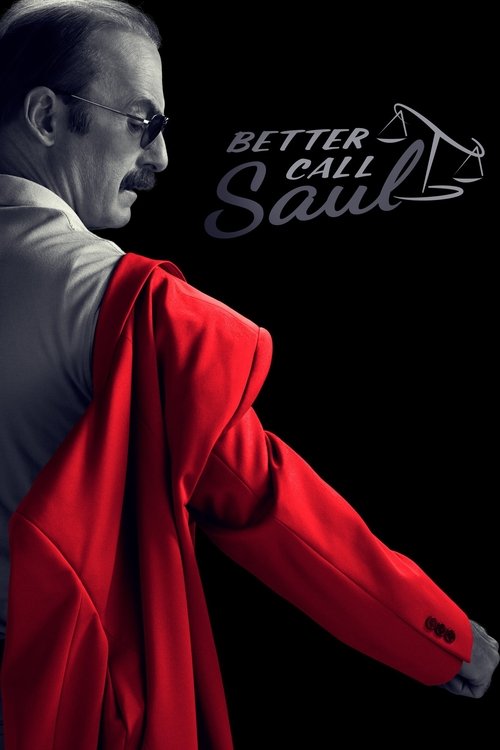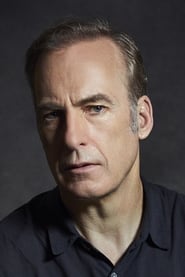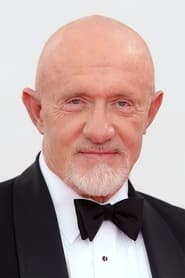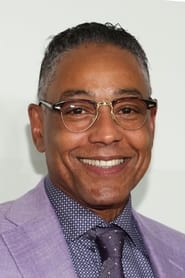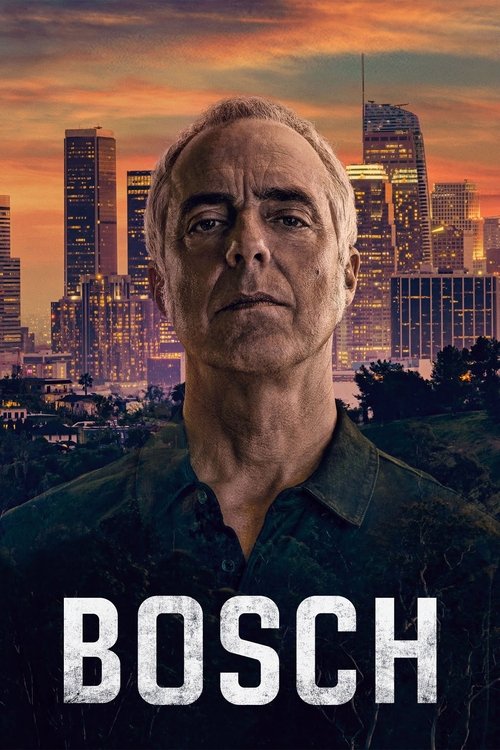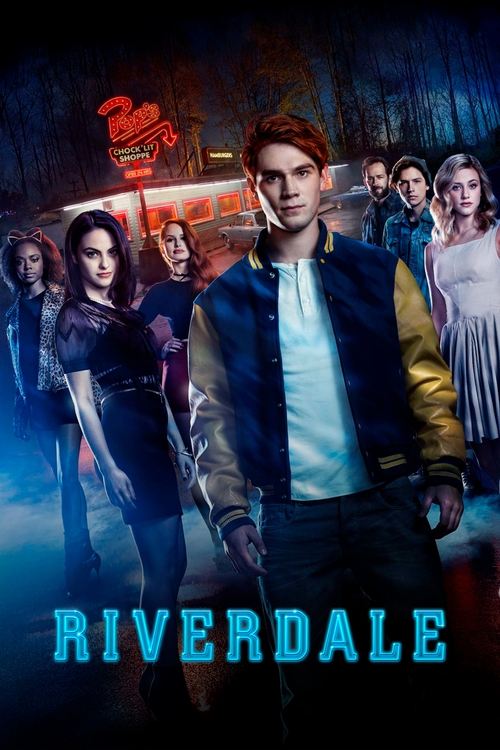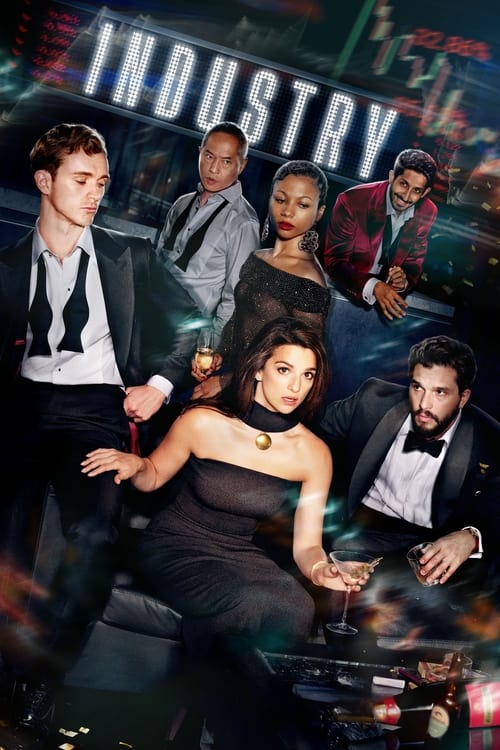
Ask Your Own Question
What is the plot?
In the first season of Better Call Saul, we are introduced to Jimmy McGill, a struggling public defender in Albuquerque, New Mexico. The series opens with a black-and-white cold open showing Jimmy working at a Cinnabon in Omaha, Nebraska, living a mundane life after the events of Breaking Bad. The narrative then shifts back to 2002, where Jimmy is trying to establish himself as a legitimate lawyer. He is often seen hustling to make ends meet, taking on low-paying cases and dealing with the fallout of his past as a con artist.
Jimmy's brother, Chuck McGill, is a successful lawyer who suffers from electromagnetic hypersensitivity, which forces him to live without electricity. Chuck is initially supportive of Jimmy but is also critical of his methods and ethics. Jimmy's relationship with Chuck is complex; he seeks his brother's approval while also feeling overshadowed by his success. After a series of events, including a failed attempt to get Chuck to help him with a case, Jimmy decides to take matters into his own hands.
In a pivotal moment, Jimmy discovers a large settlement case involving a class-action lawsuit against a nursing home. He devises a plan to get the attention of the clients by creating a flashy advertisement. This leads to a confrontation with Chuck, who disapproves of Jimmy's tactics. Despite Chuck's warnings, Jimmy goes ahead with the ad, which proves to be successful, bringing in a flood of clients.
As the season progresses, Jimmy's relationship with Kim Wexler, a fellow lawyer and his love interest, deepens. Kim is ambitious and works at a prestigious law firm, but she is also drawn to Jimmy's unconventional methods. Their relationship is tested as they navigate their careers and personal lives. Kim often finds herself torn between her professional integrity and her feelings for Jimmy.
In a significant twist, Chuck becomes increasingly paranoid about Jimmy's actions and begins to undermine him. He sets up a trap to expose Jimmy's unethical behavior, leading to a confrontation between the brothers. Chuck's actions stem from a deep-seated belief that Jimmy will never change and that he poses a threat to the legal profession. This culminates in a dramatic scene where Chuck reveals that he has been secretly recording Jimmy, intending to use the evidence against him.
The season finale sees Jimmy facing the consequences of his actions. He is forced to confront the reality of his choices and the impact they have on his relationships, particularly with Kim and Chuck. The tension between the brothers reaches a boiling point, and Jimmy's desire to prove himself leads him to make a decision that will alter the course of his life. He ultimately chooses to embrace his identity as a con artist, setting the stage for his transformation into Saul Goodman.
In the second season, the story continues to explore the fallout from Jimmy's choices. He begins to fully embrace his persona as a criminal lawyer, taking on clients who operate outside the law. His relationship with Kim becomes more complicated as she struggles to reconcile her feelings for him with her professional aspirations. The season also delves into Chuck's ongoing battle with his mental health and his obsession with Jimmy's actions.
A major plot point involves the introduction of Mike Ehrmantraut, a former police officer who becomes involved in the criminal underworld. Mike's storyline intersects with Jimmy's as they both navigate the moral complexities of their choices. Mike's motivations are driven by a desire to provide for his granddaughter, which adds depth to his character.
As the season progresses, Jimmy's relationship with Kim becomes strained as she takes on a high-profile case that puts her at odds with Jimmy's methods. The tension culminates in a dramatic confrontation where Kim confronts Jimmy about his unethical behavior. This moment forces both characters to reevaluate their relationship and their individual paths.
The season ends with a cliffhanger, as Chuck's actions against Jimmy escalate, leading to a legal battle that threatens to destroy their relationship permanently. The stakes are raised as both brothers are forced to confront their past and the choices that have led them to this point.
In the third season, the conflict between Jimmy and Chuck reaches its peak. Chuck's determination to take down Jimmy intensifies, leading to a series of legal maneuvers that put both brothers at odds. The season explores the themes of loyalty, betrayal, and the consequences of one's actions.
A significant plot point involves the introduction of the character of Howard Hamlin, Chuck's law partner, who becomes increasingly involved in the conflict between the brothers. Howard's motivations are complex, as he tries to balance his loyalty to Chuck with the reality of Jimmy's potential as a lawyer.
As the season progresses, Jimmy's transformation into Saul Goodman becomes more pronounced. He begins to embrace his role as a criminal lawyer, taking on clients who operate outside the law. This shift in character is marked by a series of increasingly unethical decisions that alienate him from Kim and further strain his relationship with Chuck.
The season culminates in a dramatic courtroom showdown between Jimmy and Chuck. In a tense and emotional scene, Chuck reveals the extent of his knowledge about Jimmy's actions, leading to a devastating confrontation. The fallout from this moment has lasting implications for both brothers, as they are forced to confront the reality of their relationship and the choices they have made.
The season ends with Jimmy fully embracing his identity as Saul Goodman, setting the stage for his future as a criminal lawyer. The transformation is complete, as he navigates the complexities of the legal world while grappling with the consequences of his actions.
In the fourth season, the story continues to explore the aftermath of the courtroom showdown. Jimmy's relationship with Kim becomes increasingly strained as he fully embraces his role as Saul Goodman. Kim struggles to reconcile her feelings for Jimmy with her desire to maintain her professional integrity.
The season also delves into the impact of Chuck's death on both brothers. Jimmy grapples with feelings of guilt and regret, while Kim becomes increasingly concerned about Jimmy's choices. The tension between them escalates as they navigate their individual paths.
A major plot point involves the introduction of new characters, including Lalo Salamanca, a member of the Salamanca drug cartel. Lalo's presence adds a new layer of complexity to the story, as he becomes involved in Jimmy's life and the criminal underworld.
As the season progresses, Jimmy's transformation into Saul Goodman becomes more pronounced. He begins to take on more dangerous clients and engage in increasingly unethical behavior. This shift in character is marked by a series of decisions that alienate him from Kim and further strain their relationship.
The season culminates in a dramatic confrontation between Jimmy and Lalo, as they navigate the complexities of the criminal world. The stakes are raised as both characters are forced to confront their motivations and the consequences of their actions.
In the fifth season, the story continues to explore the fallout from Jimmy's choices. He fully embraces his identity as Saul Goodman, taking on clients who operate outside the law. His relationship with Kim becomes increasingly strained as she grapples with her feelings for him and her desire to maintain her professional integrity.
A significant plot point involves the introduction of new characters, including Gus Fring, who becomes increasingly involved in the criminal underworld. Gus's presence adds a new layer of complexity to the story, as he navigates the challenges of running a drug empire while dealing with the fallout from Jimmy's actions.
As the season progresses, Jimmy's transformation into Saul Goodman becomes more pronounced. He begins to take on more dangerous clients and engage in increasingly unethical behavior. This shift in character is marked by a series of decisions that alienate him from Kim and further strain their relationship.
The season culminates in a dramatic confrontation between Jimmy and Gus, as they navigate the complexities of the criminal world. The stakes are raised as both characters are forced to confront their motivations and the consequences of their actions.
In the sixth and final season, the story reaches its climax as Jimmy's transformation into Saul Goodman is complete. He fully embraces his identity as a criminal lawyer, taking on clients who operate outside the law. His relationship with Kim becomes increasingly strained as she grapples with her feelings for him and her desire to maintain her professional integrity.
A major plot point involves the introduction of new characters, including the return of familiar faces from Breaking Bad. The stakes are raised as Jimmy navigates the complexities of the criminal world while grappling with the consequences of his actions.
As the season progresses, Jimmy's choices lead to increasingly dire consequences. He is forced to confront the reality of his actions and the impact they have on his relationships. The tension between him and Kim reaches a boiling point, leading to a dramatic confrontation that forces both characters to reevaluate their paths.
The series concludes with a powerful and emotional finale, as Jimmy is forced to confront the consequences of his choices. The story comes full circle as he grapples with his identity and the impact of his actions on those around him. The final moments of the series leave a lasting impression, as Jimmy's journey comes to a close, marking the end of an era for the character and the world of Better Call Saul.
What is the ending?
In the ending of Better Call Saul, Jimmy McGill, now fully embracing his alter ego Saul Goodman, faces the consequences of his actions. He is confronted with the reality of his choices, leading to a pivotal moment of self-reflection. The series concludes with a powerful scene in which he ultimately accepts responsibility for his past, culminating in a surprising yet fitting resolution.
As the final season unfolds, we see Jimmy McGill, now Saul Goodman, navigating the complexities of his life as a criminal lawyer. The series builds to a climax where he is forced to confront the fallout from his actions, particularly the impact on those he loves, including Kim Wexler.
In the penultimate episode, titled "Waterworks," Kim, who has distanced herself from Jimmy, is shown grappling with her own moral dilemmas. She is haunted by the choices she made while with him, and her decision to leave her legal career behind reflects her internal struggle. Meanwhile, Jimmy is seen fully immersed in his Saul Goodman persona, working with criminals and living a life that is increasingly at odds with his former self.
The final episode, "Something Unforgivable," begins with a flashback to a time when Jimmy and Kim were still together, showcasing their chemistry and the foundation of their relationship. This scene serves as a stark contrast to the present, where their paths have diverged.
As the narrative progresses, we witness the fallout from the events surrounding Howard Hamlin's death, which weighs heavily on both Jimmy and Kim. Kim's confrontation with Jimmy reveals the depth of her disillusionment and the emotional toll of their relationship. She expresses her anger and disappointment, leading to a pivotal moment where she decides to leave him for good.
In the climax of the episode, Jimmy is arrested for his various crimes, including his involvement in the drug trade and the manipulation of legal proceedings. In a moment of reckoning, he is faced with the choice of either continuing to lie or finally telling the truth about his actions. In a powerful scene, he confesses to the full extent of his wrongdoing, taking responsibility for his actions and acknowledging the pain he has caused to those around him.
The series concludes with Jimmy, now Saul, in a prison cell, reflecting on his life choices. The final moments show him finding a sense of peace in his acceptance of his past, suggesting a complex blend of regret and resolution.
As for the fates of the main characters:
- Jimmy McGill/Saul Goodman is sentenced to prison, where he confronts the reality of his actions and begins to accept the consequences.
- Kim Wexler, having distanced herself from Jimmy, is left to navigate her own path, carrying the weight of her decisions and the impact of her relationship with him.
- Other characters, such as Mike Ehrmantraut and Gus Fring, are not present in the final moments, but their influence lingers in the narrative, highlighting the interconnectedness of their lives.
The series ends on a note of ambiguity, leaving viewers to ponder the complexities of morality, identity, and the choices that define us.
Is there a post-credit scene?
Yes, "Better Call Saul" features a post-credit scene in its final episode, titled "Something Unforgivable." This scene takes place in black and white, set in a future timeline after the events of the main series.
The scene opens with a close-up of a disheveled Saul Goodman, now living under the alias "Gene Takavic" in Omaha, Nebraska. He is working at a Cinnabon store, where he appears to be leading a mundane and monotonous life, far removed from his former identity as a flashy criminal lawyer. The camera captures the weariness in his eyes, hinting at the weight of his past and the fear of being discovered.
As the scene progresses, we see Gene's daily routine, which includes interactions with customers and coworkers, all while he remains hyper-aware of his surroundings. He is constantly looking over his shoulder, paranoid that someone from his past might recognize him. This anxiety is palpable, showcasing his internal struggle and the consequences of his previous choices.
One day, while on a break, Gene watches a news report about the ongoing investigation into the events surrounding Walter White and the fallout from the drug empire. The report triggers a mix of nostalgia and dread, reminding him of the life he left behind. The tension builds as he contemplates his next move, revealing his deep-seated fear of being caught.
The scene culminates with Gene's decision to leave the Cinnabon store, and as he walks through the mall, he spots a man who resembles a former associate from his past. Panic sets in, and he quickly retreats, his heart racing. The scene ends with Gene in a state of distress, highlighting his isolation and the haunting memories of his former life as Saul Goodman.
This post-credit scene serves as a poignant reflection on the consequences of Gene's actions, emphasizing themes of identity, fear, and the inescapability of one's past. It leaves viewers with a sense of uncertainty about Gene's future, encapsulating the show's exploration of morality and the complexities of its characters.
What motivates Jimmy McGill to become Saul Goodman?
Jimmy McGill's transformation into Saul Goodman is driven by a combination of personal ambition, a desire for acceptance, and the need to escape his past. Throughout the series, Jimmy struggles with his identity, feeling overshadowed by his successful brother Chuck. His charm and quick wit often lead him to bend the rules, but as he faces constant setbacks in his legal career, including Chuck's disapproval and the limitations of his moral compass, he increasingly embraces the persona of Saul Goodman. This shift is marked by his willingness to engage in unethical practices, ultimately prioritizing success and financial gain over integrity.
How does Chuck McGill's condition affect his relationship with Jimmy?
Chuck McGill's electromagnetic hypersensitivity profoundly impacts his relationship with his brother Jimmy. Chuck's condition isolates him, leading to a deep-seated paranoia about technology and a reliance on old-fashioned methods. This creates a rift between the brothers, as Chuck's disdain for Jimmy's morally flexible approach to law contrasts sharply with his own rigid principles. Chuck's attempts to control and undermine Jimmy's career stem from a mix of protectiveness and jealousy, ultimately culminating in a tragic conflict that drives a wedge between them, showcasing the complexities of familial loyalty and rivalry.
What role does Kim Wexler play in Jimmy's transformation?
Kim Wexler serves as both a moral anchor and a catalyst for Jimmy McGill's transformation into Saul Goodman. Initially, Kim is a supportive partner who believes in Jimmy's potential, often encouraging him to pursue legitimate paths in law. However, as she becomes more entangled in the morally ambiguous world of legal practice, her own ambitions begin to blur the lines of ethics. Kim's struggle with her own choices and her eventual acceptance of Jimmy's darker side reflect her complex feelings for him. Their relationship oscillates between love and conflict, ultimately influencing Jimmy's descent into the criminal underworld as he adopts the Saul Goodman persona.
What is the significance of the 'Slippin' Jimmy' persona?
The 'Slippin' Jimmy' persona represents Jimmy McGill's past as a con artist and his struggle with his identity. This alter ego embodies his charm and cunning, allowing him to navigate the world through deception and manipulation. Throughout the series, Jimmy grapples with the implications of this persona, as it serves both as a source of pride and a reminder of his failures. The 'Slippin' Jimmy' identity resurfaces at critical moments, highlighting his internal conflict between wanting to be a legitimate lawyer and the allure of easy, unethical shortcuts. This duality ultimately shapes his character arc and foreshadows his evolution into Saul Goodman.
How does the relationship between Mike Ehrmantraut and Gus Fring develop?
The relationship between Mike Ehrmantraut and Gus Fring evolves from mutual respect to a complex partnership rooted in shared interests and moral ambiguity. Initially, Mike is a private investigator and fixer who works for various clients, including Nacho Varga. His encounter with Gus Fring marks a turning point, as Gus recognizes Mike's skills and reliability. As they collaborate on various operations, their relationship deepens, with Mike becoming a key player in Gus's drug empire. However, underlying tensions arise from their differing moral codes; Mike values loyalty and ethics, while Gus is ruthlessly pragmatic. This dynamic creates a rich narrative tension, culminating in pivotal moments that test their allegiance and ultimately shape the power dynamics within the criminal underworld.
Is this family friendly?
"Better Call Saul" is not considered family-friendly and contains several elements that may be objectionable or upsetting for children or sensitive viewers. Here are some aspects to be aware of:
-
Violence: The show includes scenes of physical altercations, threats, and some graphic depictions of violence, which can be intense and unsettling.
-
Drug Use: There are portrayals of drug dealing and use, including scenes that depict the consequences of addiction and the drug trade.
-
Mature Themes: The narrative explores complex themes such as morality, crime, and the consequences of unethical behavior, which may be difficult for younger viewers to understand.
-
Language: The dialogue includes strong language and profanity, which may not be suitable for children.
-
Emotional Distress: Characters often experience significant emotional turmoil, including anxiety, depression, and moral conflict, which can be heavy and distressing.
-
Criminal Activity: The show revolves around legal and illegal activities, including manipulation, deceit, and corruption, which may not be appropriate for younger audiences.
These elements contribute to the show's mature rating and may not be suitable for children or sensitive viewers.

